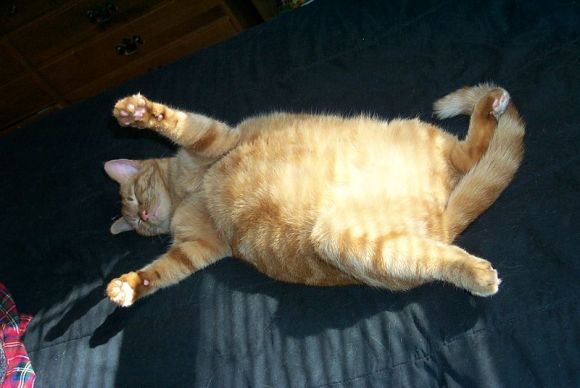
From Hello Kitty to the ubiquitous cat cafes, it’s no secret to our readers that Japan loves cats. Despite their tendency to view us humans as their own personal servants, we can’t seem to get enough of their fluffy cuteness and sometimes ridiculous antics. Whenever you need to smile, a silly cat video will usually do the trick.
So why not repay your cat by ensuring its healthy lifestyle? For starters, you can reevaluate your cat’s diet by checking out this list we’ve compiled of five at-a-glance foods that you should never feed to your pet. Maybe your kitty will thank you for your concern with even more purring and nuzzles (and no dead mice!).
- Number 1: Spring onions/scallions, onions, garlic, garlic chives; any plants belonging to the lily family
The key here is a chemical compound called allyl propyl disulfide which is found in the foods listed above. It is the same chemical that evaporates when you slice an onion and it causes your eyes to water up. While this generally causes only minor irritation in humans, it can be very dangerous to cats. It makes no difference whether the onion/garlic is raw or has been cooked.
You might be surprised to see lilies on the list as well. Besides allyl propyl disulfide, there are other compounds within plants of the lily family which can be toxic to cats, even resulting in death if accidentally ingested. So while lily flowers are certainly pretty to look at, you might want to think twice about decorating your home with them if you have kitties running around.
- Number 2: Dietary supplements
A substance which humans take to be healthier could have the reverse effect in cats. Even just one pill/capsule/tablet could prove to be lethal for cats. Be careful you don’t leave any pills lying around on the floor, or your inquisitive cat may swallow it by mistake.
Especially dangerous are supplements containing α-lipoic acid, which is marketed as an antioxidant or pharmaceutical drug in some countries. In Japan, it is known as a weight loss or energy supplement. Keep your pills tightly sealed in a place where even the most curious of cats can’t sneak into.
- Number 3: Alcoholic beverages
Hopefully all our readers already have enough common sense to understand the dangers of giving alcohol to a cat (or too much to a fellow human!), but we’d like to bring it to your attention nonetheless: you should never let your cat consume alcohol. Even just 5-8 ml of alcohol per 1 kg of your cat’s weight results in a high risk of alcohol poisoning. So next time you want to celebrate a special occasion with your feline friend, skip the booze and pick up this Nyan Nyan Nouveau cat-friendly red wine (non-alcoholic) instead!
- Number 4: Avocados (bet you didn’t know that!)
While usually harmless to humans, the toxin called persin inside of avocados is extremely dangerous to domestic animals. Persin is an oil-soluble compound that enters the body of the fruit from its pit. Avocados from Guatemala are said to contain especially high levels of persin. Scientists are still investigating the amounts found in avocados from other areas of the world. Eating avocado may induce vomiting and diarrhea in your cat…so sorry, Hello Kitty, but it looks like there’s no guacamole for you…
- Number 5: Spinach
As cats age, their urine tends to become more acidic. When this happens, deposits of calcium oxalate may accumulate. Calcium oxalate is the same chemical compound found in human kidney stones. It has the potential to form crystals in the urinary tract, which would not be a happy experience for your cat. Better to stay on the safe side and not feed spinach to your pet at all.
We hope you found this list informative and interesting!
Sources: My Navi, Wikipedia
Top image: Wikipedia (Tripp)
Images: Wikipedia (1, 2, 3, 4), Heartland Institute



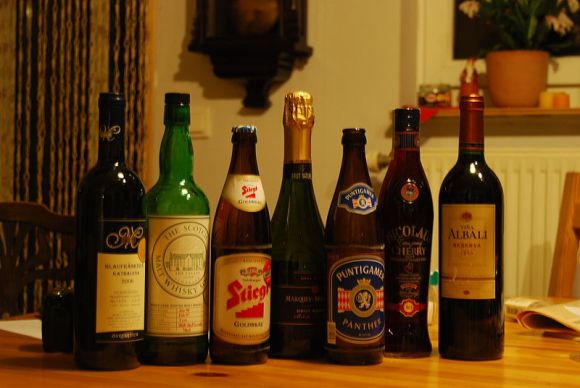
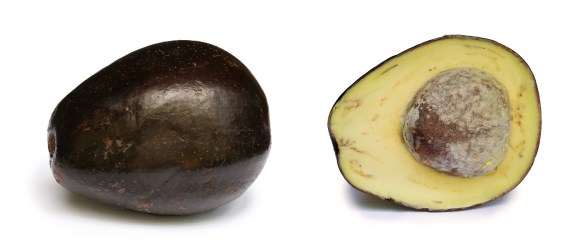
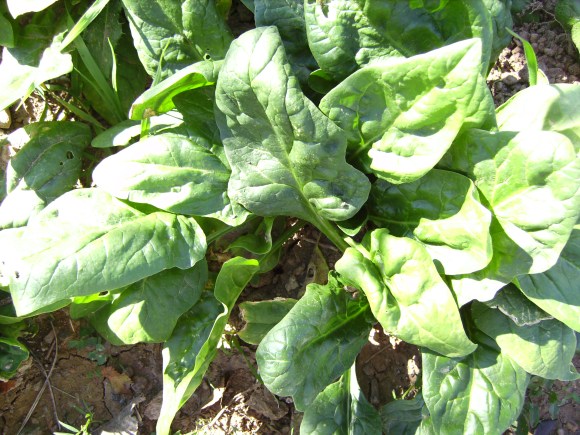
 Japanese cat book explains how cats see their human owners, and it’s not as objects of respect
Japanese cat book explains how cats see their human owners, and it’s not as objects of respect Yawns can be contagious for cats too, Japanese pet owner’s adorable felines prove【Photo】
Yawns can be contagious for cats too, Japanese pet owner’s adorable felines prove【Photo】 Neco Meshi: The line of Japanese snacks that both you and your cat can eat! 【Taste test】
Neco Meshi: The line of Japanese snacks that both you and your cat can eat! 【Taste test】 Is Japan’s Cat Island in danger of turning into the Island of Fat Cats?
Is Japan’s Cat Island in danger of turning into the Island of Fat Cats? How to fail at hide-and-seek: A cat’s guide
How to fail at hide-and-seek: A cat’s guide McDonald’s new Happy Meals offer up cute and practical Sanrio lifestyle goods
McDonald’s new Happy Meals offer up cute and practical Sanrio lifestyle goods Starbucks reopens at Shibuya Scramble Crossing with new look and design concept
Starbucks reopens at Shibuya Scramble Crossing with new look and design concept Beautiful new Final Fantasy T-shirt collection on the way from Uniqlo【Photos】
Beautiful new Final Fantasy T-shirt collection on the way from Uniqlo【Photos】 Is the new Shinkansen Train Desk ticket worth it?
Is the new Shinkansen Train Desk ticket worth it? Disney princesses get official manga makeovers for Manga Princess Cafe opening in Tokyo
Disney princesses get official manga makeovers for Manga Princess Cafe opening in Tokyo Hey, Japanese taxi driver! Take us to your favorite restaurant in Tsuruga City!
Hey, Japanese taxi driver! Take us to your favorite restaurant in Tsuruga City! Osaka’s creepy cute mascot speaks for first time, adds more fuel the creepy OR cute debate【Video】
Osaka’s creepy cute mascot speaks for first time, adds more fuel the creepy OR cute debate【Video】 There’s a park inside Japan where you can also see Japan inside the park
There’s a park inside Japan where you can also see Japan inside the park Osaka icon loses legs, restaurant says famous crab is exhausted
Osaka icon loses legs, restaurant says famous crab is exhausted New Pokémon cakes let you eat your way through Pikachu and all the Eevee evolutions
New Pokémon cakes let you eat your way through Pikachu and all the Eevee evolutions We try out “Chan Ramen”, an underground type of ramen popular in the ramen community
We try out “Chan Ramen”, an underground type of ramen popular in the ramen community Foreign English teachers in Japan pick their favorite Japanese-language phrases【Survey】
Foreign English teachers in Japan pick their favorite Japanese-language phrases【Survey】 New Studio Ghibli bedding sets are cool in all senses of the word
New Studio Ghibli bedding sets are cool in all senses of the word Japanese convenience store packs a whole bento into an onigiri rice ball
Japanese convenience store packs a whole bento into an onigiri rice ball Hanton rice — a delicious regional food even most Japanese people don’t know about, but more should
Hanton rice — a delicious regional food even most Japanese people don’t know about, but more should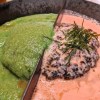 Hamburg and Hamburg Shibuya: A Japanese restaurant you need to put on your Tokyo itinerary
Hamburg and Hamburg Shibuya: A Japanese restaurant you need to put on your Tokyo itinerary Studio Ghibli releases Kiki’s Delivery Service chocolate cake pouches in Japan
Studio Ghibli releases Kiki’s Delivery Service chocolate cake pouches in Japan Japan’s bone-breaking and record-breaking roller coaster is permanently shutting down
Japan’s bone-breaking and record-breaking roller coaster is permanently shutting down New definition of “Japanese whiskey” goes into effect to prevent fakes from fooling overseas buyers
New definition of “Japanese whiskey” goes into effect to prevent fakes from fooling overseas buyers Foreign passenger shoves conductor on one of the last full runs for Japan’s Thunderbird train
Foreign passenger shoves conductor on one of the last full runs for Japan’s Thunderbird train Our Japanese reporter visits Costco in the U.S., finds super American and very Japanese things
Our Japanese reporter visits Costco in the U.S., finds super American and very Japanese things Kyoto bans tourists from geisha alleys in Gion, with fines for those who don’t follow rules
Kyoto bans tourists from geisha alleys in Gion, with fines for those who don’t follow rules Studio Ghibli unveils Mother’s Day gift set that captures the love in My Neighbour Totoro
Studio Ghibli unveils Mother’s Day gift set that captures the love in My Neighbour Totoro Domino’s Japan now sells…pizza ears?
Domino’s Japan now sells…pizza ears? New Japanese KitKat flavour stars Sanrio characters, including Hello Kitty
New Japanese KitKat flavour stars Sanrio characters, including Hello Kitty Kyoto creates new for-tourist buses to address overtourism with higher prices, faster rides
Kyoto creates new for-tourist buses to address overtourism with higher prices, faster rides Sales of Japan’s most convenient train ticket/shopping payment cards suspended indefinitely
Sales of Japan’s most convenient train ticket/shopping payment cards suspended indefinitely Sold-out Studio Ghibli desktop humidifiers are back so Totoro can help you through the dry season
Sold-out Studio Ghibli desktop humidifiers are back so Totoro can help you through the dry season Japanese government to make first change to romanization spelling rules since the 1950s
Japanese government to make first change to romanization spelling rules since the 1950s Ghibli founders Toshio Suzuki and Hayao Miyazaki contribute to Japanese whisky Totoro label design
Ghibli founders Toshio Suzuki and Hayao Miyazaki contribute to Japanese whisky Totoro label design Doraemon found buried at sea as scene from 1993 anime becomes real life【Photos】
Doraemon found buried at sea as scene from 1993 anime becomes real life【Photos】 Tokyo’s most famous Starbucks is closed
Tokyo’s most famous Starbucks is closed One Piece characters’ nationalities revealed, but fans have mixed opinions
One Piece characters’ nationalities revealed, but fans have mixed opinions We asked a Uniqlo employee what four things we should buy and their suggestions didn’t disappoint
We asked a Uniqlo employee what four things we should buy and their suggestions didn’t disappoint Princesses, fruits, and blacksmiths: Study reveals the 30 most unusual family names in Japan
Princesses, fruits, and blacksmiths: Study reveals the 30 most unusual family names in Japan Studio Ghibli’s new desktop Howl’s Moving Castle will take your stationery on an adventure
Studio Ghibli’s new desktop Howl’s Moving Castle will take your stationery on an adventure Style your hair like a cat with kitty saliva hair gel from Japan
Style your hair like a cat with kitty saliva hair gel from Japan McDonald’s Japan’s new Avocado Beef, Chicken, and Shrimp burgers look surprisingly good
McDonald’s Japan’s new Avocado Beef, Chicken, and Shrimp burgers look surprisingly good Shrine cat takes a nap in a Zen garden【Photos】
Shrine cat takes a nap in a Zen garden【Photos】 Avocado Tiramisu Cake: Japan’s newest must-try dessert
Avocado Tiramisu Cake: Japan’s newest must-try dessert Visiting Taiwan’s cat village, where the cats are ready for cuddles!【Photos】
Visiting Taiwan’s cat village, where the cats are ready for cuddles!【Photos】 Feasting with Fluffy! Learn how to cook for both you and your feline friend
Feasting with Fluffy! Learn how to cook for both you and your feline friend How to enjoy wasabi painlessly, or at least as painlessly as possible
How to enjoy wasabi painlessly, or at least as painlessly as possible Japanese TV reveals the revolting truth about the source of jasmine’s alluring fragrance
Japanese TV reveals the revolting truth about the source of jasmine’s alluring fragrance Eat not like a king, but like a cat at this cat food-themed restaurant in Japan
Eat not like a king, but like a cat at this cat food-themed restaurant in Japan Tokyo’s cat pub, the cat cafe for grown-ups
Tokyo’s cat pub, the cat cafe for grown-ups Playful leaping cat melts hearts online as it entreats its fellow feline to play
Playful leaping cat melts hearts online as it entreats its fellow feline to play Japanese 7-Eleven asking public’s help in stopping feline crime
Japanese 7-Eleven asking public’s help in stopping feline crime Amazon Japan opens dedicated “Cat Store,” offers more than 26,000 items to pamper your puss with
Amazon Japan opens dedicated “Cat Store,” offers more than 26,000 items to pamper your puss with Japan’s first 100 percent non-alcoholic and vegan bar to open in Tokyo’s Roppongi district
Japan’s first 100 percent non-alcoholic and vegan bar to open in Tokyo’s Roppongi district 7-Eleven’s edible cat paw proves Japanese convenience store sweets are on a whole other level
7-Eleven’s edible cat paw proves Japanese convenience store sweets are on a whole other level
Leave a Reply